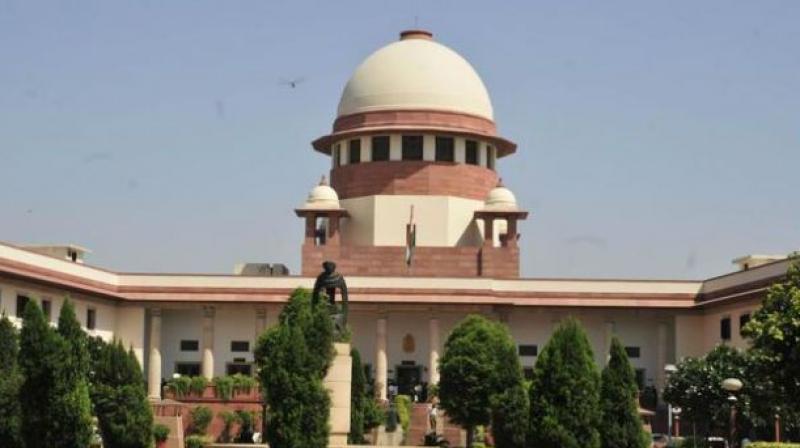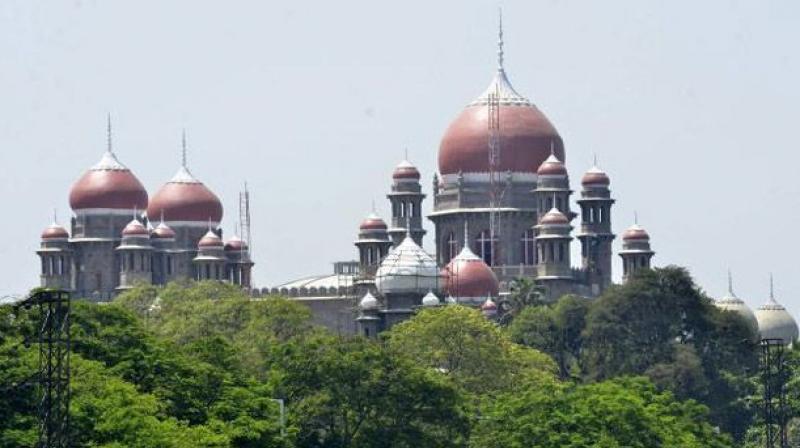2013: The Union law ministry thrice writes to SC to allow CCTV cameras in courtrooms.

Supreme Court
By S A Ishaqui
Hyderabad, August 22: The order of the Supreme Court allowing cameras into courtrooms will greatly improve current court practices, jurists feel.
The introduction of audio and video recordings of proceedings in subordinate courts will open to public scrutiny the performance of presiding officers.
Justice Gopalakrishna Tamada, former judge of the AP High Court, said that the decision of the apex court will contribute to transparency of court processes and better case management.
He feels that recordings of proceedings will speed up the trial process as trial judges will be able to replay the recorded proceedings from day one of the trial should they wish to do so.
He said the justice system should make use of modern technology and the necessary amendments to the Indian Evidence Act, enacted in 1872, should be made.
Justice P. Lakshman Reddy, former judge of the AP High Court, said video recordings of court proceedings will have an effect on the conduct of everyone present in the courtroom, be it advocates, judges, litigants, witnesses etc, as everything they say or do will be captured on camera, he said. Judges, too, will follow the code of conduct for fear of losing dignity and respect if their behaviour falls short.
He said that there is no way currently to check whether presiding officers function throughout the prescribed working hours or not. The performance of trial judges has hitherto been assessed on the basis of the disposal rate of cases, but with the introduction of video recordings, the High Court can check whether they are holding the proceedings throughout the prescribed hours or not.
Maintaining that since court proceedings are open to all, there should be no question of privacy, the former judge said, “I hope that the Supreme Court will consider allowing the general public to access the video footage in the near future, though as of now it has barred access of video footage to lawyers, litigants and the general public through the Right to Information Act. “
The introduction of audio and video recordings of proceedings in subordinate courts will open to public scrutiny the performance of presiding officers.
Justice Gopalakrishna Tamada, former judge of the AP High Court, said that the decision of the apex court will contribute to transparency of court processes and better case management.
He feels that recordings of proceedings will speed up the trial process as trial judges will be able to replay the recorded proceedings from day one of the trial should they wish to do so.
He said the justice system should make use of modern technology and the necessary amendments to the Indian Evidence Act, enacted in 1872, should be made.
Justice P. Lakshman Reddy, former judge of the AP High Court, said video recordings of court proceedings will have an effect on the conduct of everyone present in the courtroom, be it advocates, judges, litigants, witnesses etc, as everything they say or do will be captured on camera, he said. Judges, too, will follow the code of conduct for fear of losing dignity and respect if their behaviour falls short.
He said that there is no way currently to check whether presiding officers function throughout the prescribed working hours or not. The performance of trial judges has hitherto been assessed on the basis of the disposal rate of cases, but with the introduction of video recordings, the High Court can check whether they are holding the proceedings throughout the prescribed hours or not.
Maintaining that since court proceedings are open to all, there should be no question of privacy, the former judge said, “I hope that the Supreme Court will consider allowing the general public to access the video footage in the near future, though as of now it has barred access of video footage to lawyers, litigants and the general public through the Right to Information Act. “


